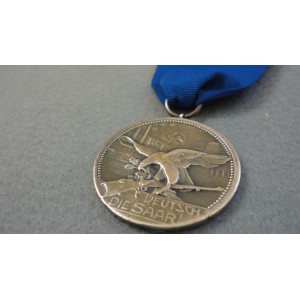No products
Best sellers
-

WW2 - SS Officer Visor Cap Skull with Eagle - Metal
Recommended by us due to the High Quality and detail of this product....
£ 19.99 -

WW2 - SS Officer Visor Cap Skull - Superior
Recommended by us due to the High Quality and detail of this product....
£ 11.99 -

WW2 Iron Cross with Oak Leaves and Swords,included Ribbon - SUPERIOR
Recommended by us due to the High Quality and detail of this product....
£ 19.99 -

WW2 The Knights Cross of the Iron Cross - in gold
Recommended by us due to the High Quality and detail of this product....
£ 21.99 -

WW2 German U-Boat War Badge - in Silver
Recommended by us due to the High Quality and detail of this product....
£ 14.99 -

WW2 - Luftwaffe Officer Visor Cap Eagle
Recommended by us due to the High Quality and detail of this product....
£ 12.99 -

WW2 - SS Officer Visor Cap Eagle - Superior
Recommended by us due to the High Quality and detail of this product....
£ 12.99 -

WW2 N.S.D.A.P - Golden Party Badge
Full size type,numbered and marked to The Golden Party Badge....
£ 17.99 -

WW2 - SS Skull Badge - ( Mine Honor is True Jewelry )
Recommended by us due to the High Quality and detail of this product....
£ 11.99 -

WW2 Clasp 1939 to the Iron Cross
Recommended by us due to the High Quality and detail of this product....
£ 13.99
ww2 German Medals with Ribbons
No manufacturer
No supplier
Viewed products
-

WW2 German...
Recommended by us due to the High...
WW2 German Medal-DEUTSCH DIE SAAR 1935
New product
Recommended by us due to the High Quality and detail of this product.
Will not be disappointed with the quality of item.
----Looks Like Orginal----
This product is no longer in stock
More info
A referendum on territorial status was held in the Territory of the Saar Basin on 13 January 1935. Over 90% voters opted for reunification with Germany, with 9% voting for the status quo as a League of Nations mandate territory and less than 0.5% opting for unification with France.
Background.
After the end of World War I, the Saar territory was separated from Germany and administered by the League of Nations.During this time, France was given control of the Saar's coal mines. After 15 years of League of Nations administration, a referendum was scheduled to take place in the territory.
Campaign.
While all important political groups in the Saar supported the Saar's return to Germany before Adolf Hitler and the Nazis came to power, opponents of Nazism in the Saar began having doubts and misgivings about a return of the Saar to Germany after Hitler's rise to power. Due to Hitler's oppression of their German counterparts, Communists and socialists in the Saar supported a continuation of the League of Nations administration and a delay in the plebiscite until after the Nazis were no longer in power in Germany. Meanwhile, Roman Catholics in the Saar were divided in regards to returning to German rule. In order to achieve victory in this referendum, the Nazis resorted to "a mixture of cajolery and brutal pressure".In 1933, Sarah Wambaugh, one of the members of the Plebiscite Commission, stated that complaints of a Nazi "reign of terror" were made by non-Nazi Saarlanders and by the foreign press. These complaints included allegations that the Nazis engaged in intimidation, "espionage, secret denunciations, kidnappings ..., ... interception of letters and telegrams, [and] listening-in to telephone conversations", among other things. In response to all of this, the Saar Governing Commission had to "promugulat[e] several restrictive decrees for the maintenance of public order". In November 1934, fearing armed intervention by France, the Nazi German government reduced its belligerency and changed its tactics.As a part of this, Joseph Burckel, Hitler's commissioner for the Saar, banned the wearing of uniforms within a 25-mile zone along the Saar frontier between 10 January 1935 and 10 February 1935.In addition, Burckel also banned meetings, parades, and processions in this area.Likewise, Jacob Pirro, the Nazi leader in the Saar, told his followers to obey the strictest discipline and implemented harsh penalties for any infractions.
Results.
In the referendum, voters were asked whether the Saar should remain under League of Nations administration, return to Germany or become part of France.To the surprise of neutral observers as well as (to some extent) the Nazis themselves, over 90% voted in favour of reuniting with Germany.Every voting district saw at least 83% of voters support returning the Saar to German rule.Meanwhile, despite Georges Clemenceau's previous claim that there were 150,000 Frenchmen in the Saar, less than 1% of voters supported the annexation of the Saar by France.
Reviews
No customer reviews for the moment.






